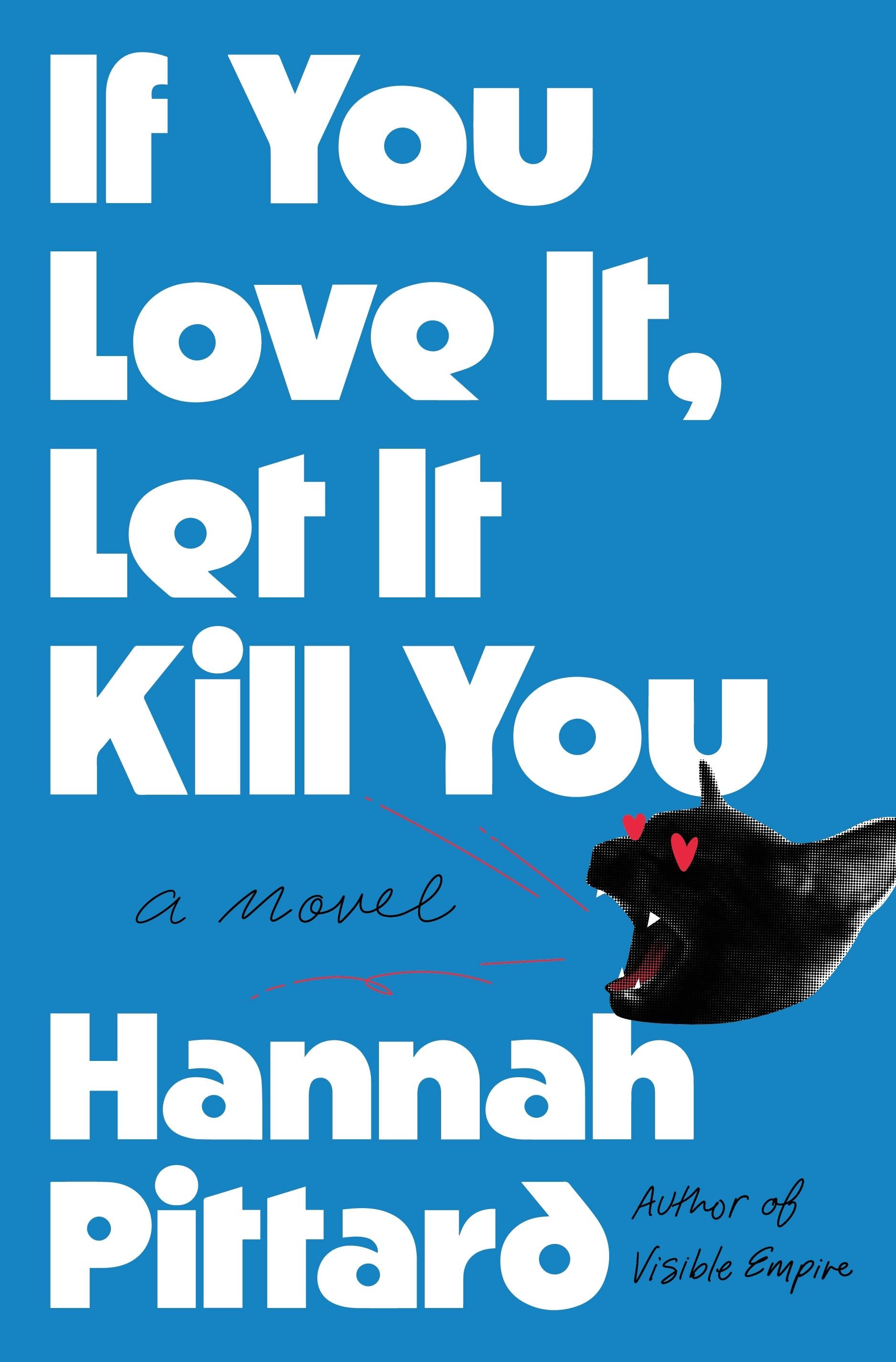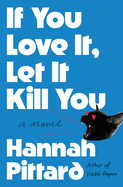If a tree falls in the forest, does it make a book? Are we living in a simulation? Is there such a thing as a time/print space warp? If we experience something over and over in what we perceive as present tense, but local and national media only experience it in future tense, which one is "real"? And the big question: Just how niche are we anyway?
My online niche rabbit hole descent began with three specific "breaking news" moments this month. The first was a New York Times piece, headlined "Beginning a New Chapter, Surrounded by Books," which noted that "across the country, many couples are weaving bookstores and books into their proposals or weddings."
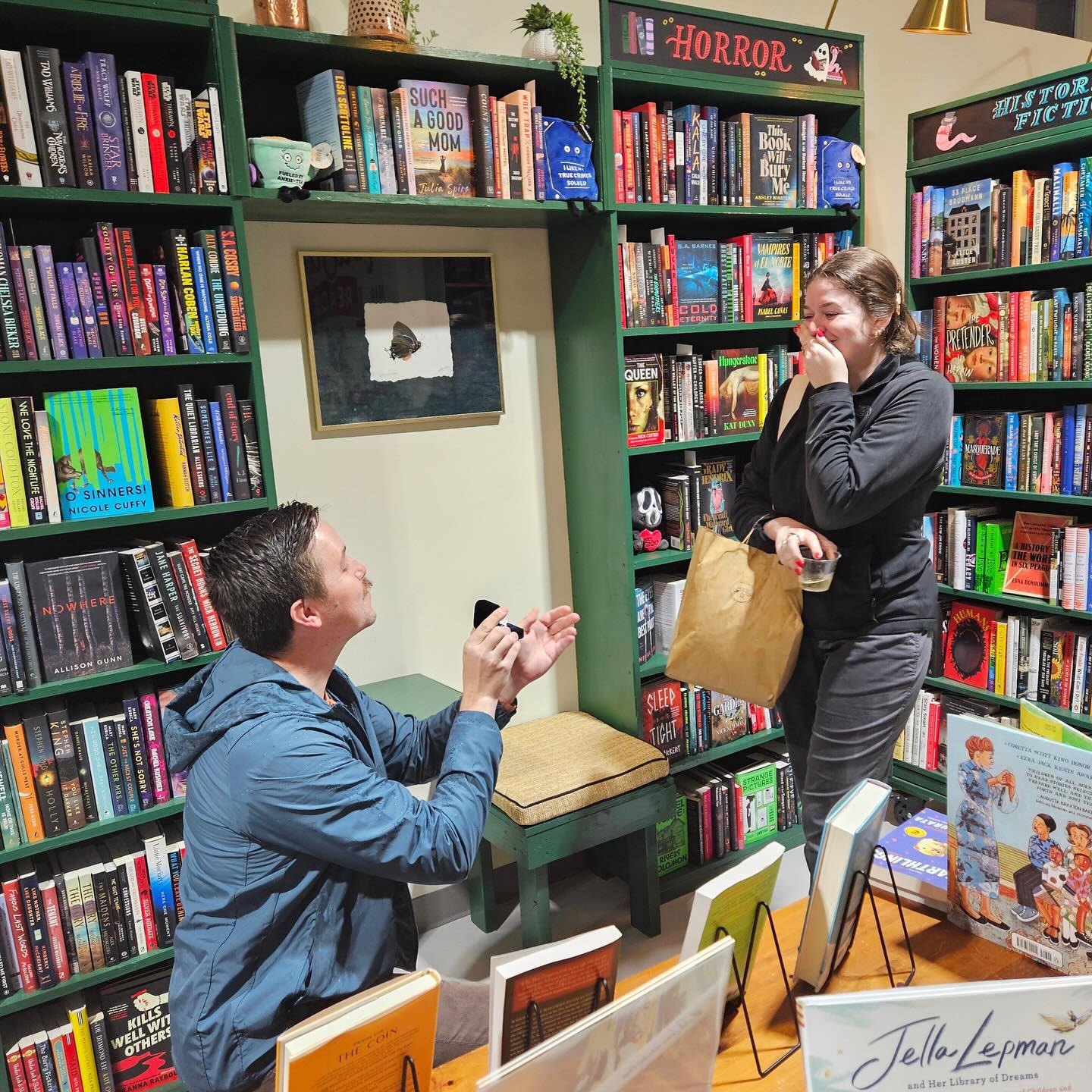 |
| At Red Stick Reads |
It was breaking news for the Times, I guess, even if it wasn't news to us. In April and May alone, Shelf Awareness highlighted romantic moments at Red Stick Reads, Baton Rouge, La.; Volumes Bookcafe, Chicago, Ill.; 57th Street Books, Chicago, Ill.; Thank You Books, Birmingham, Ala.; Blue Cypress Books, New Orleans, La.; Lost and Bound Books, Oklahoma City, Okla.; and Scuppernong Books, Greensboro, N.C. And this has been going on for awhile.
It seems like news and social media has upped the public aspect of the ceremonies, but we were highlighting bookish nuptials and engagements as far back as 2008, when Shelf Awareness reported that because several county clerks in her area had stopped performing marriages, Heather Lyon, owner of Lyon Books & Learning Center in Chico, Calif., as well as a recently "ordained minister of the Universal Life Church and, for good measure, the Church of Spiritual Humanism," said she would happily perform non-religious marriages in the bookstore.
And in 2012, Changing Hands Bookstore, Tempe, Ariz., was the setting for a proposal that came in the form of a coupon to be redeemed at the store register. The coupon was good for one engagement ring. Bookshop wedding bells were ringing in 2009, 2011, 2013, 2014, 2015, and happily ever after.
The second "breaking news" moment hit me just a few days later, when the Associated Press reported: "A wave of new owners brings fresh energy to independent bookselling."
Citing positive recent member growth numbers from the American Booksellers Association--2,863 individual members (up from 1,244 in 2016) at 3,281 locations (up from 1,749), with more than 200 stores in the process of opening--the AP said the influx has "helped the independent book community dramatically expand, intensify and diversify. Independent bookselling is not a field for fortune seekers: Most local stores, whether run by retirees, bookworms or those switching careers in middle age, have some sense of higher purpose. But for many who opened in recent years, it's an especially critical mission."
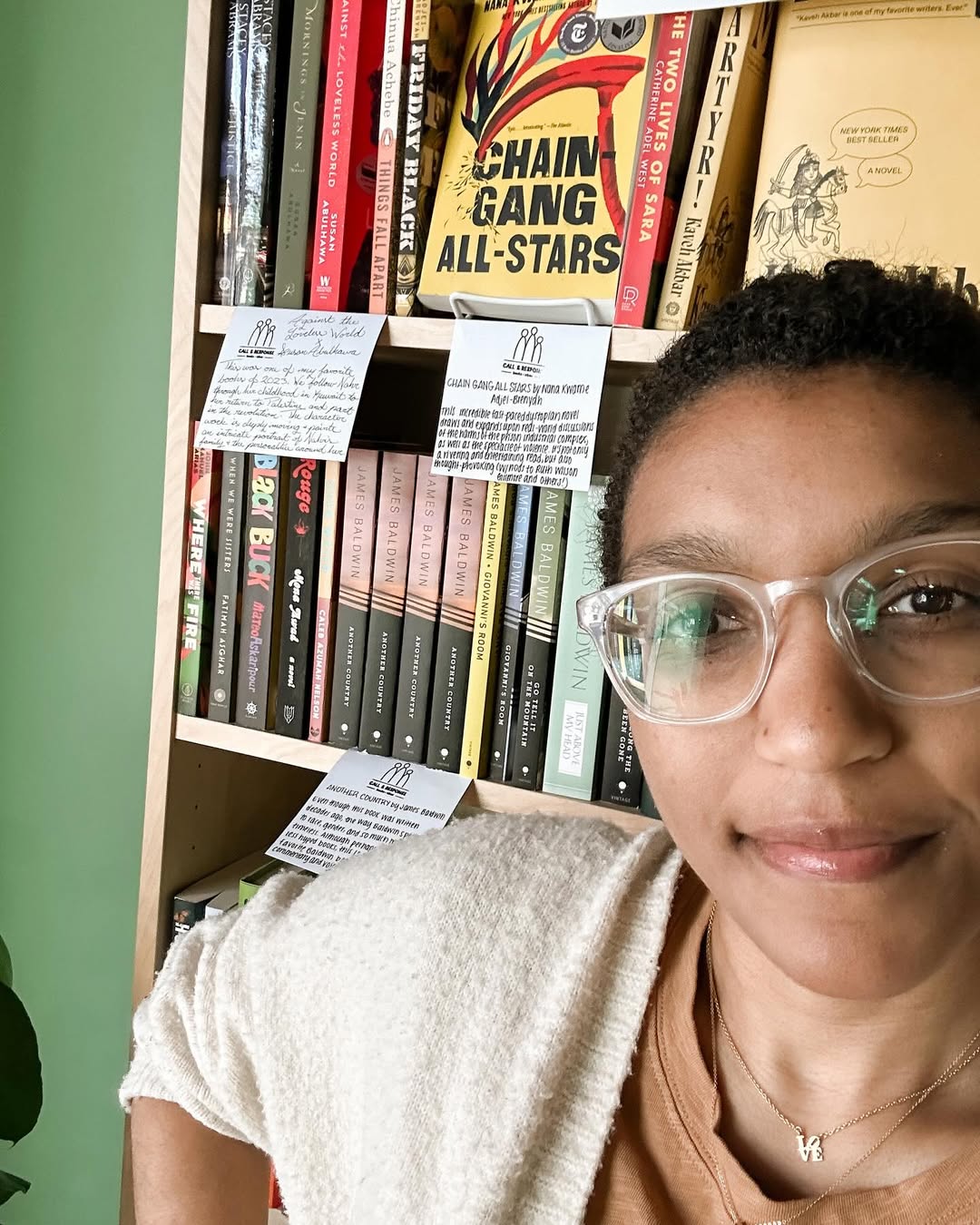 |
| Courtney Bledsoe at Call & Response Books |
Courtney Bledsoe, owner of Call & Response Books, Chicago Ill., said, "This endeavor is probably the hardest thing I have ever done in my life. We're just doing this to serve the community, doing something we love to do, providing people with great events, great reading. It's been a real joy."
All true, all excellent news, though the momentum has been building steadily for more than a decade (and despite Covid).
Now we arrive at my third breaking news moment this month. Call it the camel's back breaker. Earlier this week I heard the Bloomberg Radio folks reference the AP article and proceed to "cute chat" about how wonderful the news was. They referenced their own great experiences at Murder Ink mystery bookstore on New York's Upper West Side, which closed in 2006; and the old Shakespeare & Co. bookstore on Broadway and 81st St., which closed in the mid-1990s. Then they mentioned Barnes & Noble.
That was when I began to wonder: Are indie bookstores a niche business? Does that explain the media time lag on the newsworthiness of significant changes and trends in this cozy corner of the book trade?
Perhaps it does, but I also considered the fact that I have experience in an actual niche business. During the 1980s, I worked as an editor for Sailboard News, the trade magazine for the windsurfing business, covering what was at the time dubbed the "fastest growing sport" in the world.
It was a challenge to write "breaking news" stories for an industry where the overriding controversy was that nobody could actually use the term "windsurfing" because the patent holders, and particularly a litigious dude named Hoyle Schweitzer, fiercely protected the design and the word. Thus the name Sailboard News and the use of "boardsailing" as counter-semantics.
Between patent battles and state-by-state inconsistencies regarding whether sailboards were or were not vessels (thus requiring registration and/or flotation devices), the news end of the sport was considerably less sexy than the exotic beach locations highlighted in the advertisements that kept us afloat.
Still, about this time each year, national media outlets like USA Today and the New York Times would dutifully call our office for generic quotes to run with their annual "hit the beach" pre-summer features. That, my friends, was life in a true niche business zone.
Which brings me back to the question: How niche is the bookselling business? For me, books are and always have been a key pathway to how I perceive the world, other humans, and even the passage of time. After 30 years in the book trade, I think it's the center of the known universe. And having been a longtime bookseller myself just heightens that perception. The national media may be operating on a bookstore news time delay, but I'll take our bookish present tense any day. And aren't books timeless anyway?
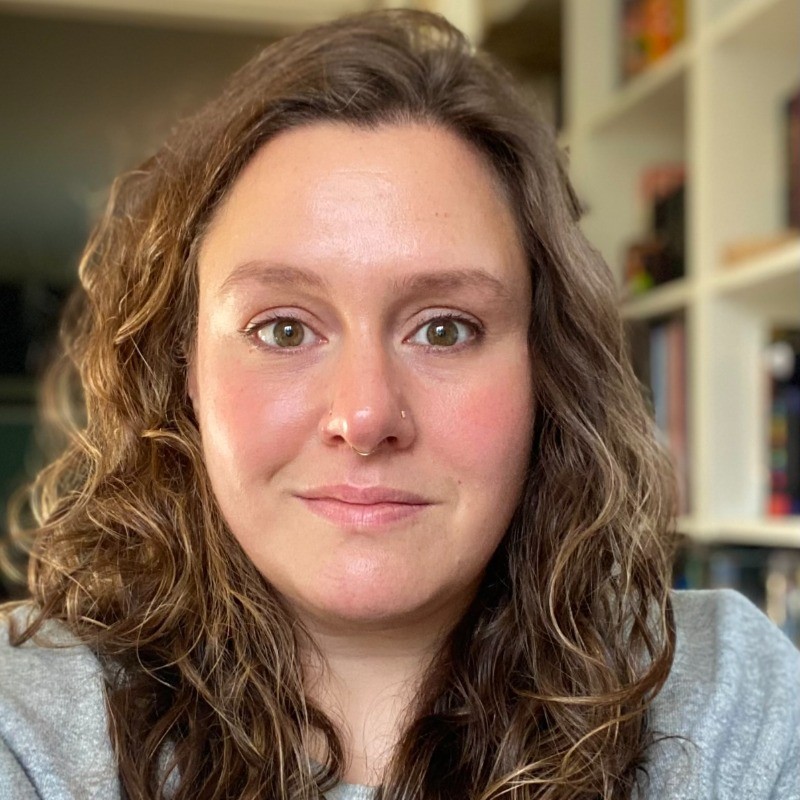 "Let me start with this: I didn't choose children's bookselling. It chose me. And I think that goes for tons of people in the industry. It doesn't matter what your position is, whether you're a general bookseller or a children's bookseller or you specialize in poetry, it's something that finds you and you fall in love with it."
"Let me start with this: I didn't choose children's bookselling. It chose me. And I think that goes for tons of people in the industry. It doesn't matter what your position is, whether you're a general bookseller or a children's bookseller or you specialize in poetry, it's something that finds you and you fall in love with it."







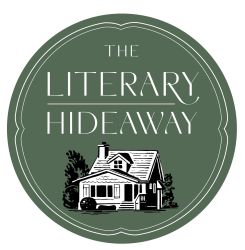 The Literary Hideaway
The Literary Hideaway
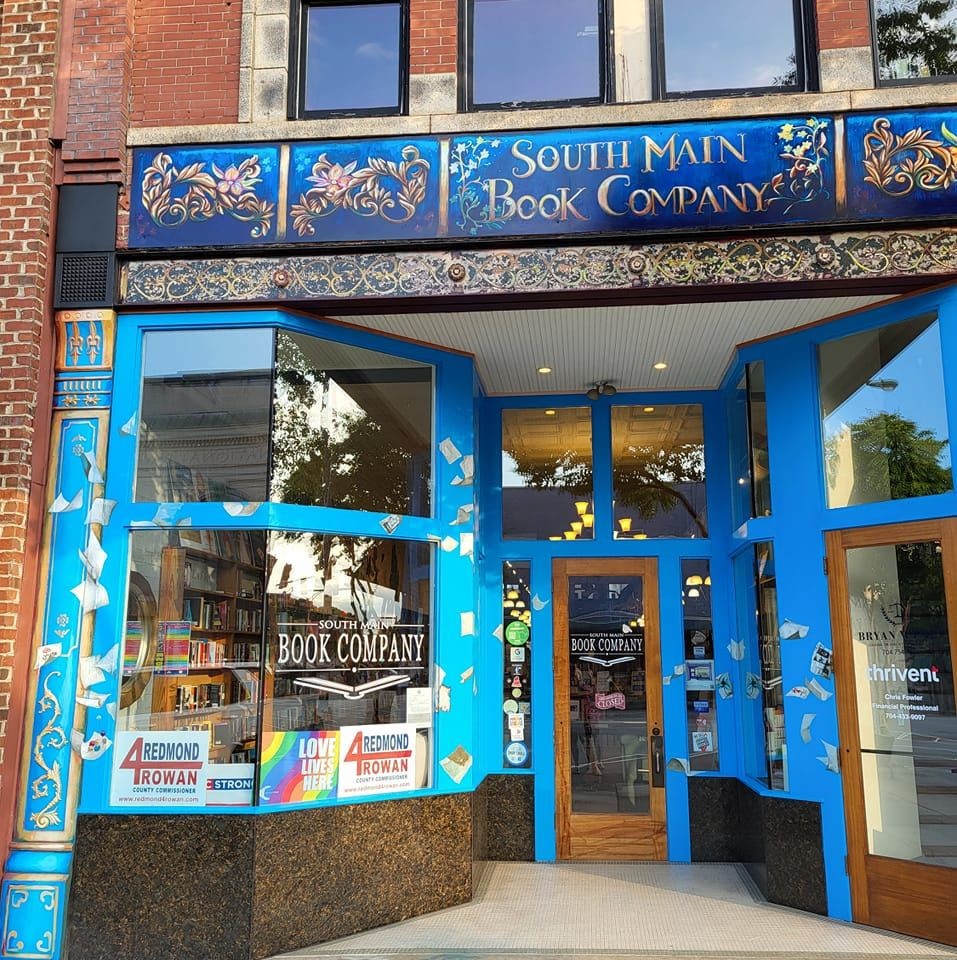
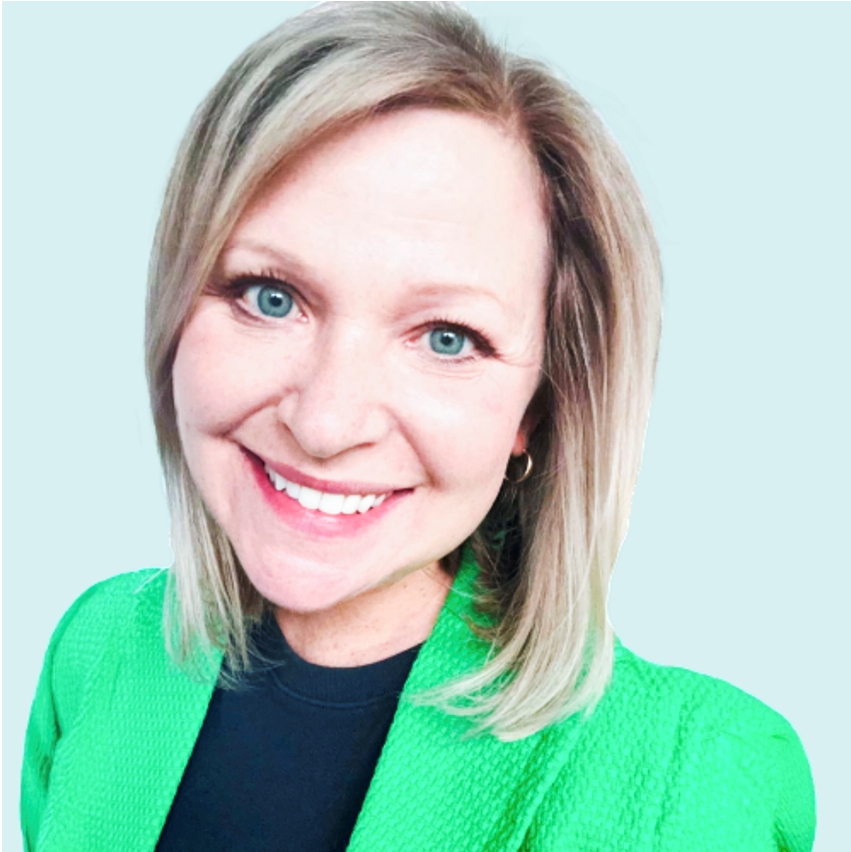
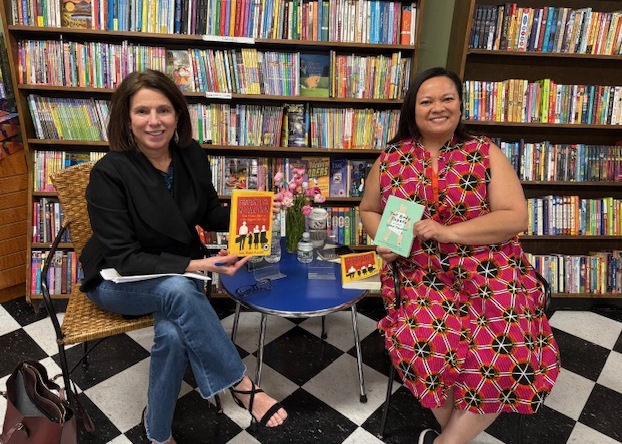
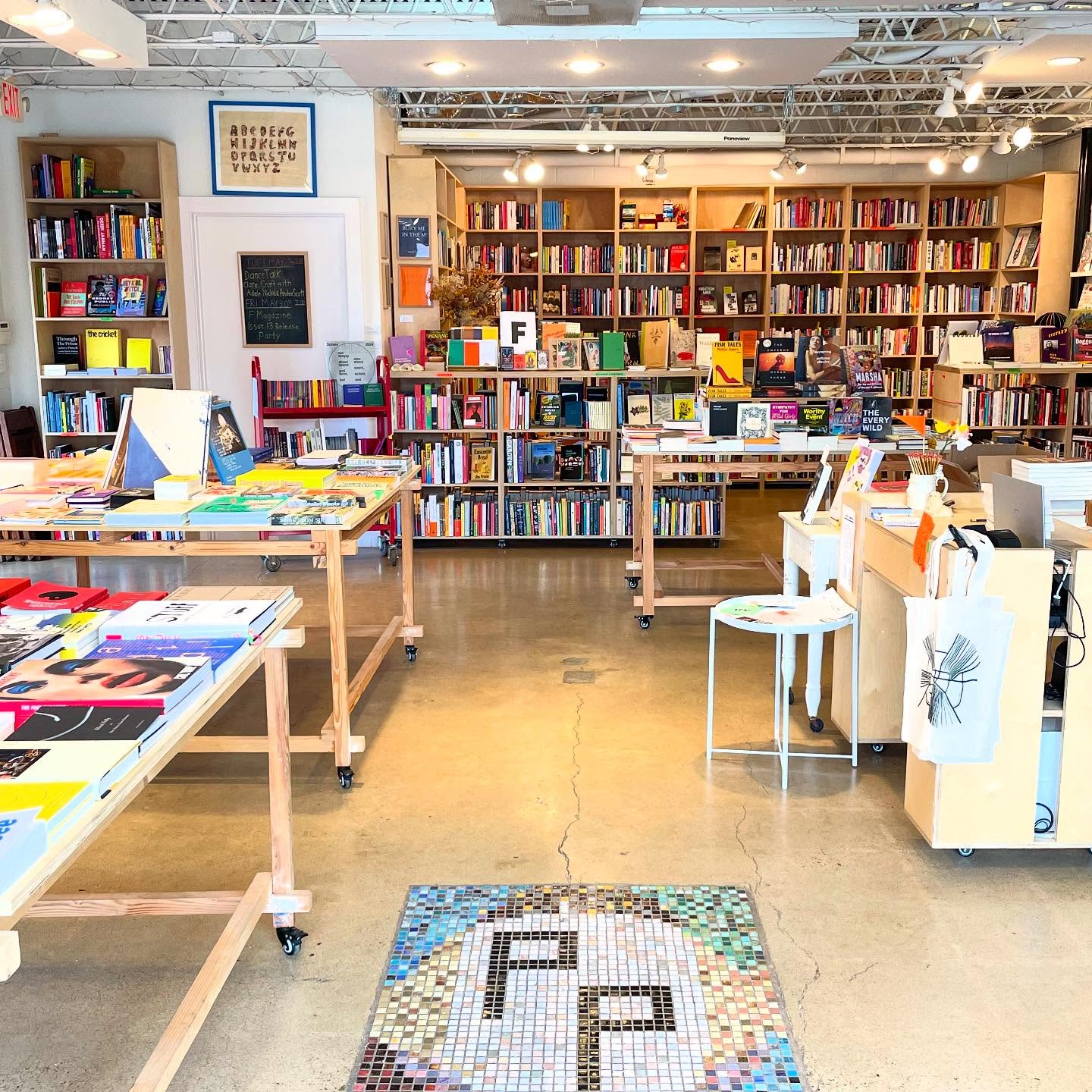 Posted on Instagram by
Posted on Instagram by 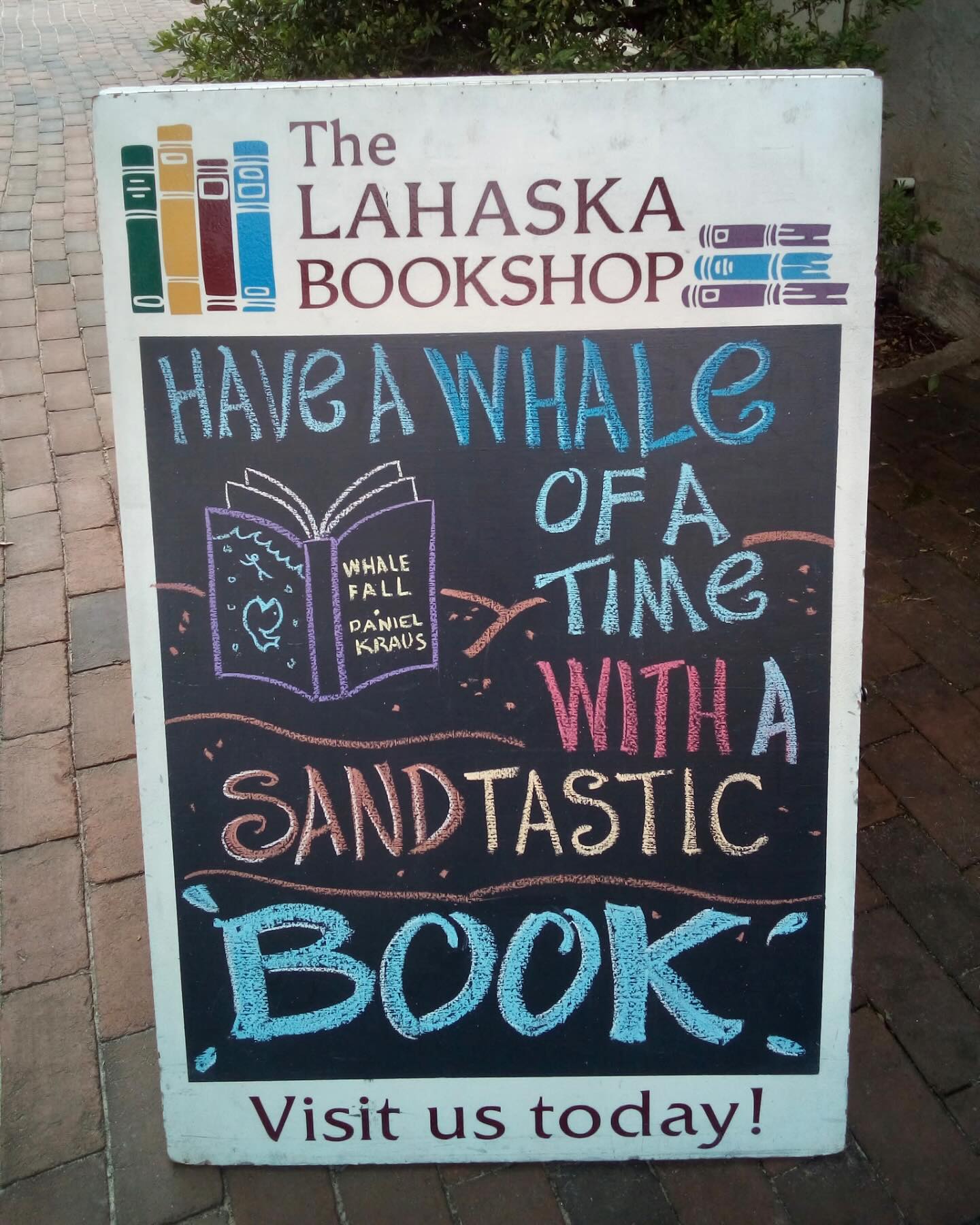 "
"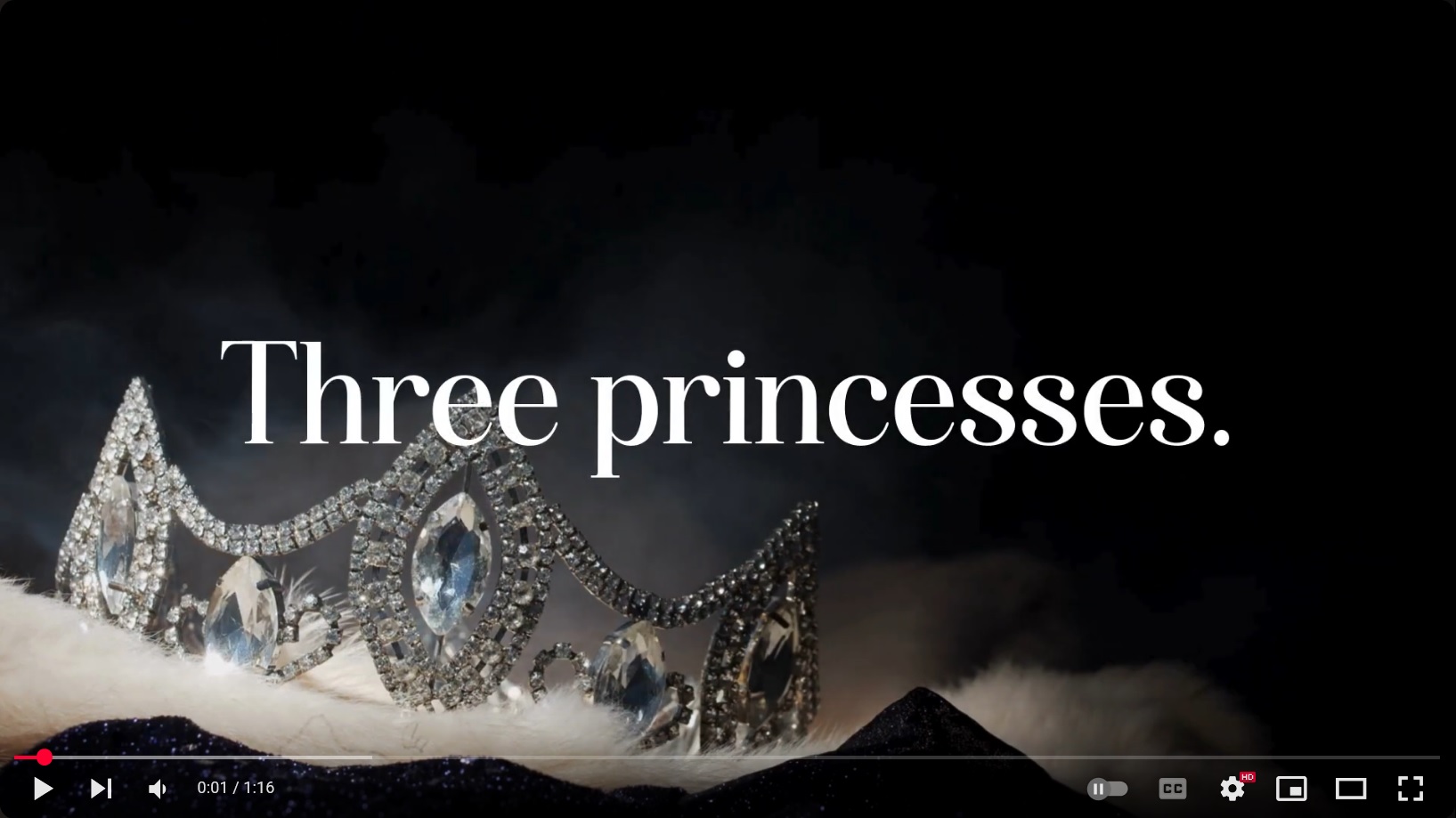 After Happily Ever: An Epic Story of Midlife Rebellion
After Happily Ever: An Epic Story of Midlife Rebellion